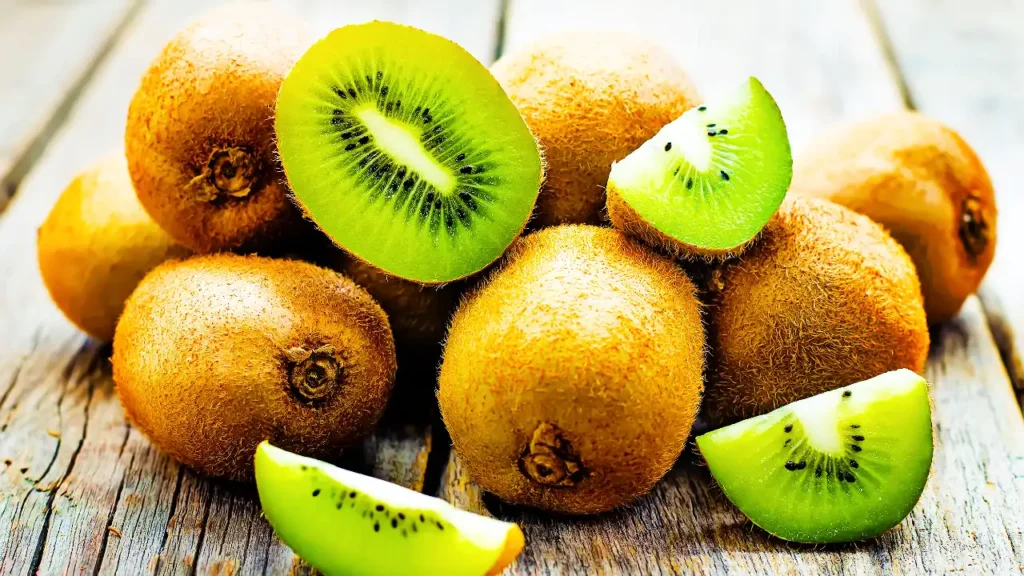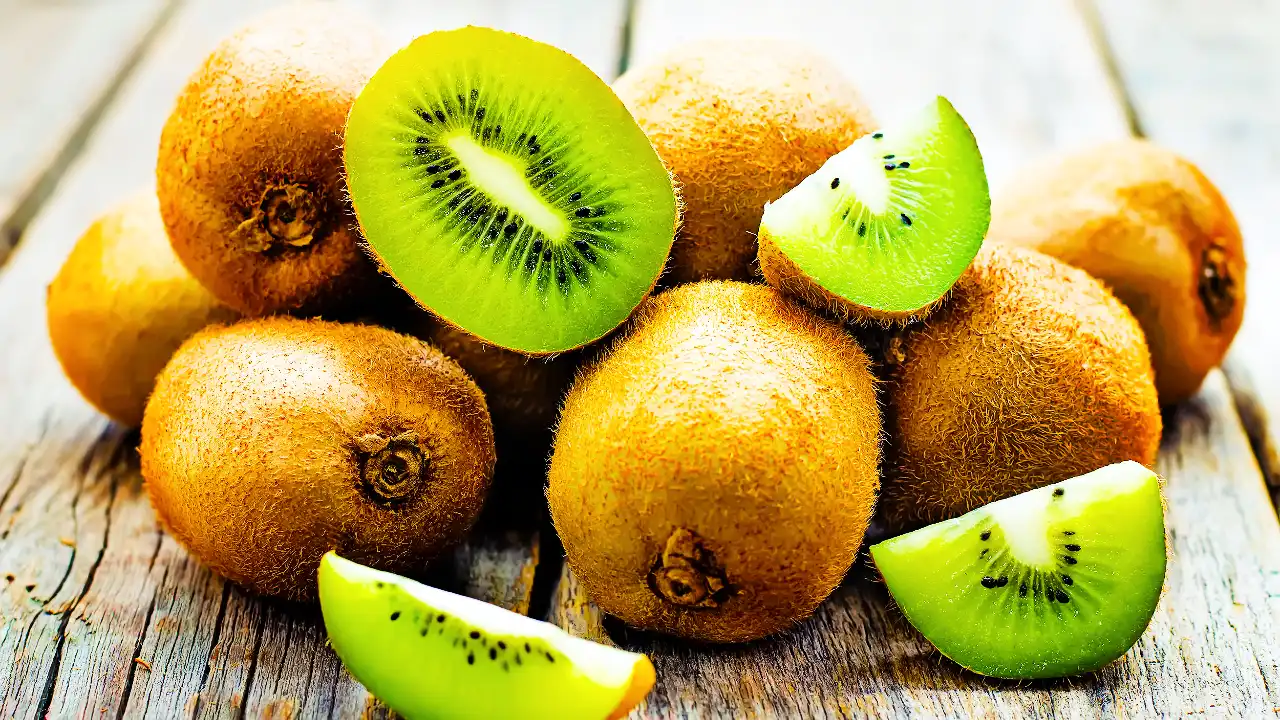kiwifruit : In the field of mental health, an intriguing study conducted by the University of Otago has revealed the swift mood-boosting qualities of an apparently ordinary and fuzzy fruit – the kiwifruit.
This study emphasizes the rapid onset of mood improvements resulting from consuming kiwifruit, providing fresh insights into how diet can affect our emotional well-being.

At the core of this research lies the significance of vitamin C, which has long been linked not only to physical well-being but also to mental vigor.
Kiwifruit vs. vitamin C supplements
Although the benefits of vitamin C in enhancing mood and reducing depression are recognized, the immediate effects of vitamin C-rich foods and supplements on mood elevation have not been extensively studied until now.
Under the leadership of Professor Tamlin Conner from the Department of Psychology and Dr. Ben Fletcher, the research team initiated an 8-week dietary intervention involving 155 adults with low levels of vitamin C.
These participants were divided into three groups: one group received a vitamin C supplement, another received a placebo, and the third consumed two kiwifruits daily. Their experiences of vitality, mood, flourishing, sleep quality and quantity, and physical activity were meticulously tracked through smartphone surveys.
Rapid benefits of whole foods
Interestingly, the study discovered that consuming kiwifruit resulted in a boost in mood and vitality in just four days, with the most significant effects seen around days 14-16.
In contrast, the improvement from vitamin C supplements was more gradual, noticeable only up to day 12. This swift improvement in mood and well-being highlights the potential of whole foods like kiwifruit to provide comprehensive health benefits beyond individual supplements.
Professor Conner stresses the practical implications of these findings, saying, “It’s important for people to realize that small adjustments in their diet, such as adding kiwifruit, could have a positive impact on how they feel every day.”
Fresh perspective on diet and mental health
Dr. Fletcher shares the sentiment, noting that even participants with fairly good mental health experienced benefits from either the kiwifruit or vitamin C interventions.
He further emphasizes the study’s contribution to understanding the day-to-day connection between diet and mental well-being.
“This shows us that what we eat can have a relatively quick impact on how we feel. Our participants already had relatively good mental health, so there wasn’t much room for improvement, yet they still reported the benefits of kiwifruit or vitamin C interventions,” he explains.
“We advocate for a holistic approach to nutrition and well-being, which involves incorporating a variety of nutrient-rich foods into your diet,” Dr. Fletcher concludes.
Harnessing the power of kiwifruit
The study promotes a holistic approach to nutrition and well-being while introducing a new method in nutritional research using intensive smartphone surveys.
This method offers real-time insights into changes related to mood.
“The use of intensive smartphone surveys provides a real-time understanding of day-to-day changes in mood-related outcomes,” stated Conner.
In conclusion, the University of Otago study offers compelling evidence for the mood-boosting effects of kiwifruit. It advocates for a more holistic approach to dietary choices, stressing the importance of including a variety of nutrient-rich foods for overall mental well-being.
This research broadens our understanding of the connection between diet and mood while offering a simple, accessible means for individuals to support their mental health.
More about kiwifruit
As mentioned earlier, kiwifruit, commonly referred to as kiwi, is recognized as a nutritional powerhouse among fruits.
Originally from China, this small, fuzzy fruit has traveled worldwide, becoming popular for its distinctive taste and remarkable health advantages.
Vitamins and minerals
At the heart of kiwifruit’s appeal lies its abundant vitamin C content, surpassing even that of oranges. Just one kiwi can fulfill your daily recommended intake of this essential nutrient.
Vitamin C bolsters your immune system, promotes skin health, and facilitates iron absorption.
Yet, the benefits of kiwifruit extend beyond its vitamin C content. It serves as an excellent source of dietary fiber, promoting digestion and a healthy gut. The fiber in kiwi also contributes to heart health by lowering cholesterol levels.
Kiwifruit is also rich in various other vitamins and minerals, including vitamin K, vitamin E, and potassium. These nutrients bolster bone health, prevent blood clotting, and regulate blood pressure, respectively.
With its low-calorie profile and high nutrient and fiber content, kiwifruit makes for an ideal snack for those aiming to maintain or shed weight.
Its natural sweetness and distinctive flavor make it a delightful addition to salads, smoothies, or simply enjoyed on its own.
Kiwifruit is good for the mind, body and soul
Furthermore, kiwifruit contains antioxidants like carotenoids and flavonoids, which combat oxidative stress and may lower the risk of chronic diseases such as heart disease and cancer.
What distinguishes kiwifruit, however, is its potential impact on sleep quality. Studies suggest that its high levels of antioxidants and serotonin may enhance both the duration and quality of sleep.
In conclusion, kiwifruit is a nutritional powerhouse. With its array of health benefits, from bolstering immunity to enhancing sleep, it’s no surprise kiwifruit has earned its reputation as a superfruit.
Next time you’re in need of a healthy, rejuvenating snack, opt for a kiwi!
